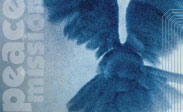


   |
|
Kim Dae Jung - South Korea
Year: 2000 Nobel Peace Prize Cause: For his work for democracy and human rights in South Korea and in East Asia in general, and for peace and reconciliation with North Korea in particular Biography Kim was born on Haui-do, a poor island in Muan Country in south-western Korea. His father, a farmer, moved to the local port of Mokp'o in 1936 to run a small inn. The young Kim successfully managed a firm shipping supplies during the Korean War, during which he also escaped North Korean imprisonment. He also published a small daily newspaper. Kim entered politics in 1954, in an unsuccessful bid for a seat in the National Assembly. In 1960 Kim was elected to the Assembly and during the democratic regime served as official government spokesman. He was reelected in the three subsequent elections of 1963, 1967, and 1971. Because he had risen to prominence spearheading the unsuccessful 1969 parliamentary effort to prevent a third term for President Park Chung Hee (Pak Chong-hui), he was chosen as the New Democratic Party's presidential candidate against President Park. Despite harassment and government election controls, Kim received 43.6 percent of the vote, shocking the Park government. Thereafter, government pressures against Kim mounted: he was nearly killed in a government- engineered "accident." In 1972 and 1973 Kim took his cause to the United States; on the way home, during a short stay in Japan, he was kidnapped by Seoul government agents and nearly killed: his rescue and release in Seoul was only obtained under US government pressure. The incident focused international attention on Kim, but he was soon tried, convicted, and imprisoned on obscure charges including "spreading rumors" during the 1967 and 1971 elections. On 1 March 1976, while still under house arrest, Kim joined nineteen other social leaders in a call for democratic restoration. Kim was given a five-year sentence and remained in jail until December 1978 for this action; on his release he was returned to house arrest, which was not lifted until 8 December 1979, six weeks after the assassination of President Park. Kim then started to campaign for the elections that were expected to be held in 1980, his plans for splitting the opposition with rival Kim Young-sam causing popular disappointment. In mid-May Kim was arrested in the coup of Major General Chun Doo Hwan (Chon Tu-hwan), who accused him of fomenting subsequent demonstrations in Kwangju, which Chun bloodily put down. Washington characterized these charges as "far-fetched." Jailed under a death sentence that was reduced to life imprisonment as a result of international pressure, Kim was then allowed to go to the United States for "medical treatment" in December 1982; he was a fellow at Harvard University from 1983 to 1984. On 8 February 1985 Kim, accompanied by thirty-seven American well-wishers, returned to Seoul, where police violence caused a much-publicized airport scuffle. Kim was not recommitted to jail, however, but placed under house surveillance, from which he was released on 6 March 1985. Kim resumed an influential role in his nation's reviving political life, and was elected president of the Republic of Korea in December 1997 and inaugurated in February 1998. Taking over the government in the midst of an unprecedented financial crisis, President Kim devoted himself to the task of economic recovery and managed to pull the country back from the brink of bankruptcy. Related Links |